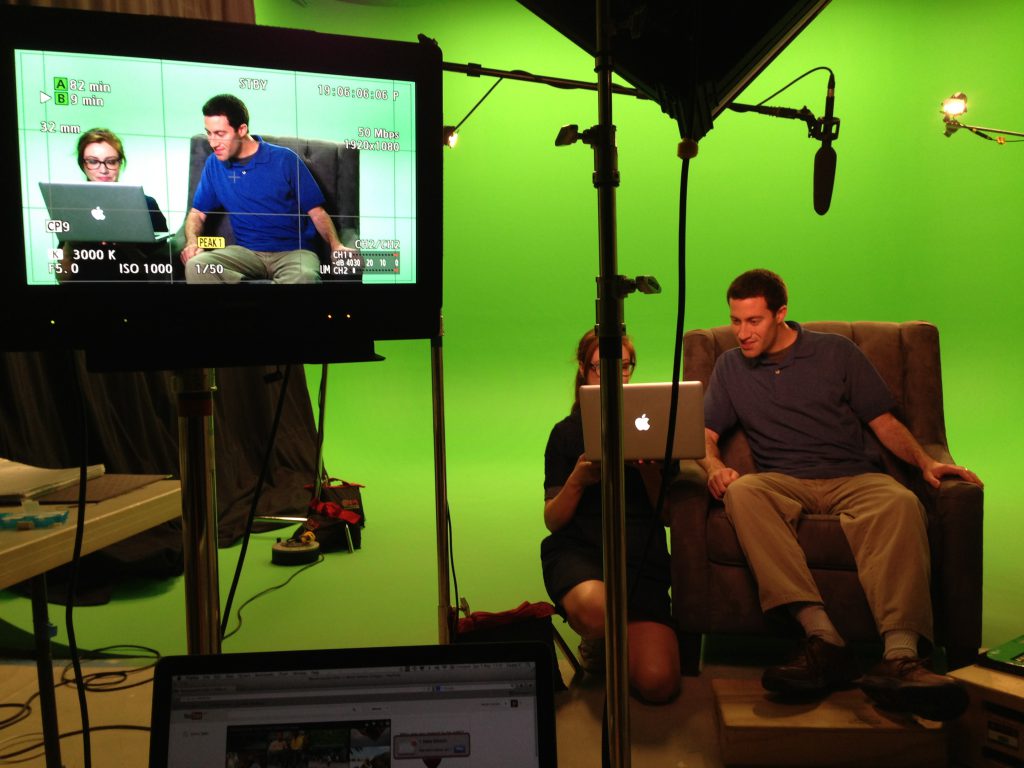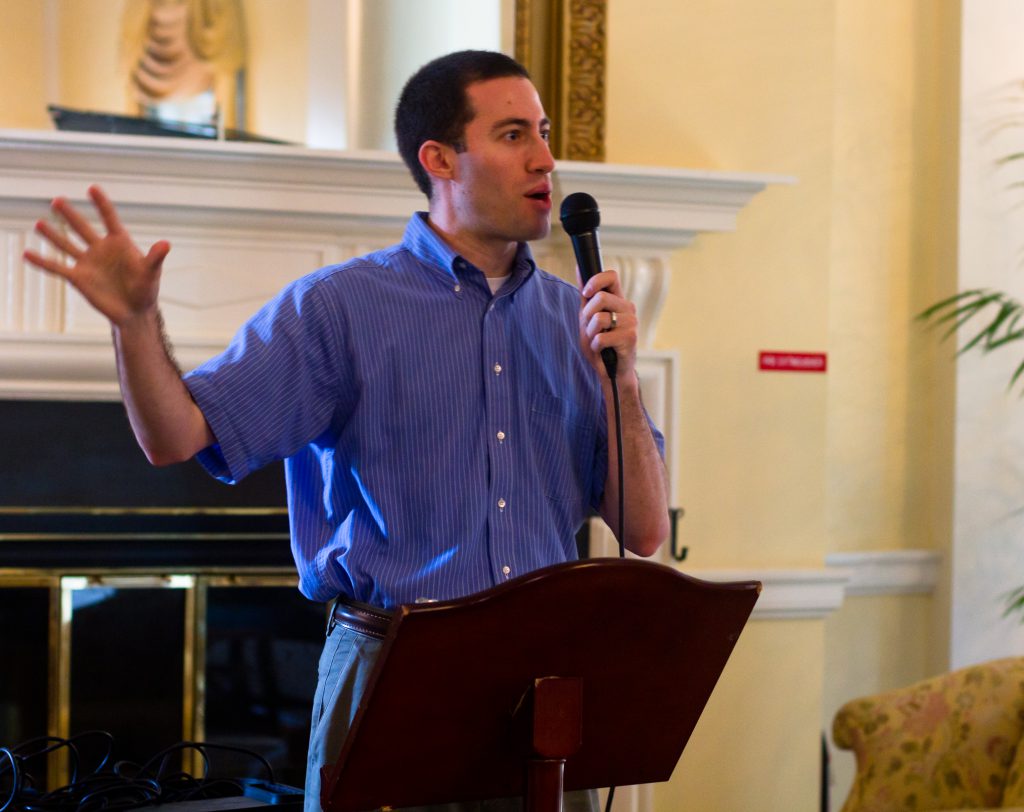Dr. Adam Ruben is a comedian, a writer and a molecular biologist. While his day job consists of developing a malaria vaccine for a company called Sanaria he also does something a little more captivating. He is a co-host for the Science Channel’s “Outrageous Acts of Science.”
 What has driven Ruben — whose television debut began on the Food Network’s Food Detectives, who for the last 3 years has written a monthly humor column, “Experimental Error,” for the journal Science, and who travels the nation performing as a stand-up comic and more — to TV is not a motivation for fame or money. Instead his focus is on advancing his field, not only with research and applied science, but also in the public’s understanding and support of science in general.
What has driven Ruben — whose television debut began on the Food Network’s Food Detectives, who for the last 3 years has written a monthly humor column, “Experimental Error,” for the journal Science, and who travels the nation performing as a stand-up comic and more — to TV is not a motivation for fame or money. Instead his focus is on advancing his field, not only with research and applied science, but also in the public’s understanding and support of science in general.
“As scientists, we are often shielded in this bubble where we think that everyone loves what we do,” he says, “that when we announce our results the world is happy to hear them. And then we look at the reality of it. I wrote something for NPR a couple years ago on vaccination, and I got so many nasty comments from people who objected to the very idea of vaccines and the belief that vaccines are a government conspiracy.”
Interested in bringing science to the masses? Here are the five essential components that led Ruben to his television breakthrough. With any luck, they could also launch your television career.
- Let passion guide you —
 What started as a one-semester opportunity to teach a science-communication English class at John Hopkins University as a graduate student, ended up landing Ruben 13 semesters of teaching experience. It all started with his decision to take a few writing classes while in grad school. “I never really demonstrated any kind of proficiency to get my teaching job,” says Ruben, “All the department knew was that I was interested in writing.”
What started as a one-semester opportunity to teach a science-communication English class at John Hopkins University as a graduate student, ended up landing Ruben 13 semesters of teaching experience. It all started with his decision to take a few writing classes while in grad school. “I never really demonstrated any kind of proficiency to get my teaching job,” says Ruben, “All the department knew was that I was interested in writing.” - Start saying yes — Ruben advises being active outside academia or your day job. “I would tell young scientists to do things outside the lab. Any time an opportunity comes up, take it.” Ruben recalls the time he volunteered to be a judge at a local high school science fair. “That’s the exact sort of thing that young scientists should be signing up for when the opportunity comes up. …I learned a lot from studying these high school science experiments. I learned what a typical high school student thinks science is. And I saw great experiments. And I also saw the two kids that just made Jell-O with or without fruit in it. And they concluded that fruited Jell-O tasted better. Try anything and everything and know more about the world around you. There’s a lot to learn from volunteering from any kind of tangential thing to science.”
- Speak to the Public — Referring to the other scientist hosts at “Outrageous Acts of Science,” Ruben says that almost everyone has a background rich with public speaking. “They do things like TED Talks, or they’re scientists who are comedians. That sort of thing,” he says, “In DC and around the country, there’s something called Nerd Night, or there’s Ignite, where people get to present something of their choice in Power Point form to people who are, well, drinking. Nerd Night is a half hour and is more scientific, but again it’s at a bar. Ignite is sort of like Ted Talks, but it’s 5 minutes. …It’s a fun thing to try. I would advise people to look for things like that. You can learn a lot more about how to communicate science.”
- Time for a Website…Maybe — How did Ruben land his job with the Science Channel? “They must have googled me and seen my website,” he says. “For many years I thought I would build a website myself. I finally gave up and paid for it about two years ago. It turned out to be a really good decision, because I know that I got some gigs just by virtue of having a website. It gives you that credibility. It shows that you’re willing to spend money on your work. So presumably you must be making money. So presumably you must be good. But I don’t know if young scientists should get their own website just yet. Well, there’s no reason not to. If you feel like it, go for it!”
- Pave the way for serendipity — How did Ruben land his humor column at Science magazine? “That was again very serendipitous. When my book came out in April 2010, (“Surviving Your Stupid, Stupid Decision to Go to Grad School”) the person who’s now my editor saw the title of my book and thought maybe it would be unique to have a monthly humor column in ScienceCareers, which is part of the AAAS’s Science journal, and he’s like hey do you want to try this? I tried it, and now it’s three years later, and I’m still writing there monthly.”
Are you a scientist who uses television to speak to the masses? If so, we want to highlight your story in the blog. Share in a comment below, or contact us directly via phil.meagher@jove.com.


